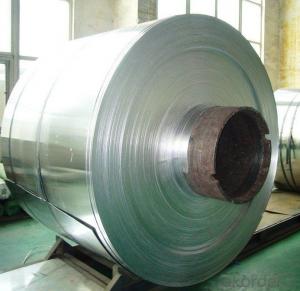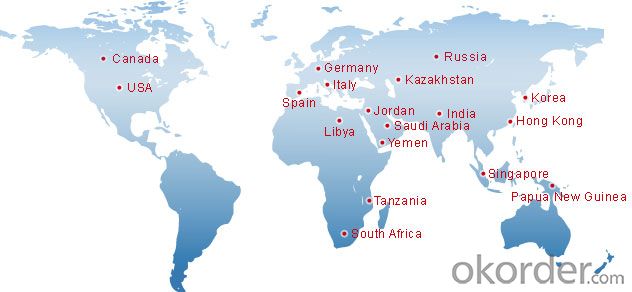Aluminium Coil for Cable Shield with High Quality and Cheap Price
- Loading Port:
- Shanghai
- Payment Terms:
- TT OR LC
- Min Order Qty:
- 2.5
- Supply Capability:
- 5000 m.t./month
OKorder Service Pledge
OKorder Financial Service
You Might Also Like
Item specifice
Aluminium Coil for Cable Shield with High Quality and Cheap Price
l Product Introduction
Alloy: 1000 series, 3000 series, 8000series
Temper: O H22 H24 H26 H28
Apply: bill board, selectronic circuit board, building exterior decoration, curtain wall plate,reflective devices,etc.
Thickness: 0.2-2.0mm
Length: 1000-6000mm
Width: 1100-1700mm
| Alloy No. | Thickness (mm) | Width (mm) | Length (mm) | Temper | |
| 1100, 1050, 3003, 8011 | 0.2-2.0 | 1100-1700 | 1000-6000 | O, H22, H24, H26, H28 | |
l Packaging & Delivery
Packaging detail: Standard seaworthy exporting carton, Wooden pallets, waterproof paper and plastic coverage or as customer's requirements
Delivery detail: about 25 days from received oiginal L/C or advance payments
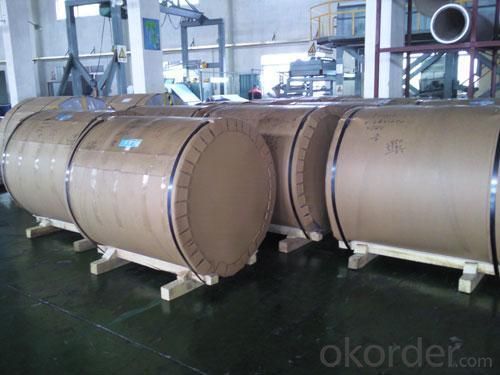
l Company Profile
CNBM International Corporation, China National Building Materials (Group) Corporation, is one of the largest companies in China building material & equipment industry, with 42,800 employees and sales in 2005 of US Dollar 4.395 billion. In 2006, China National Building Material Company Limited was listed on Hong Kong Stock Market with the stock code as 3323. |
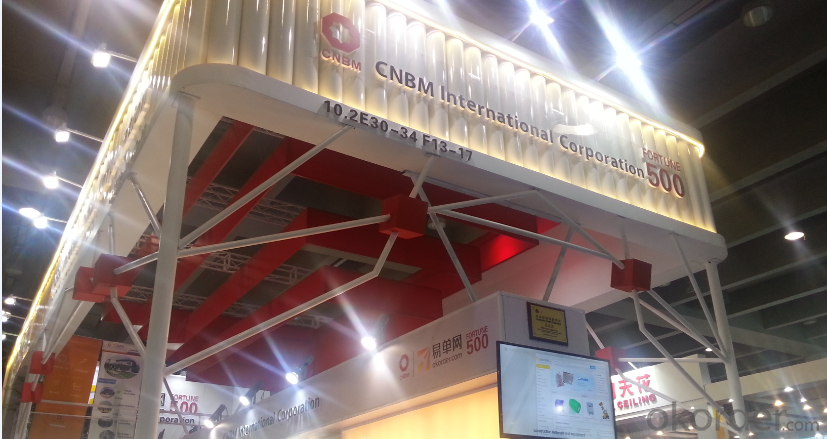
l CNBM World Wide
l Product Images
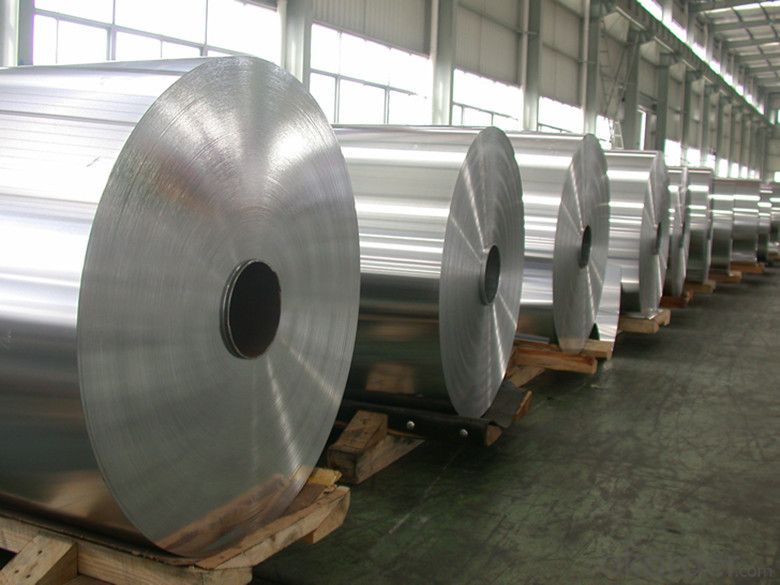
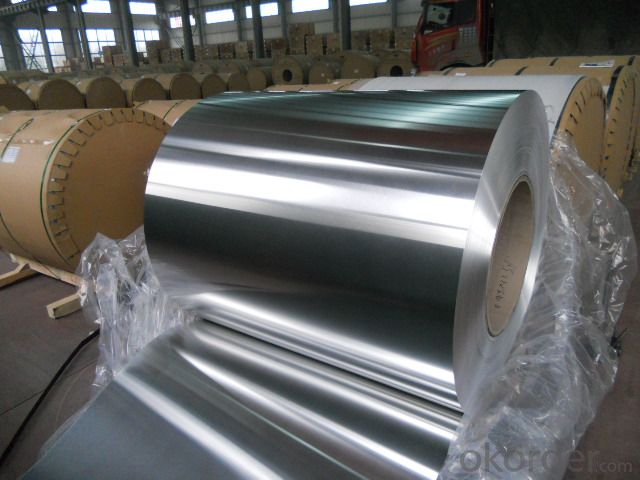
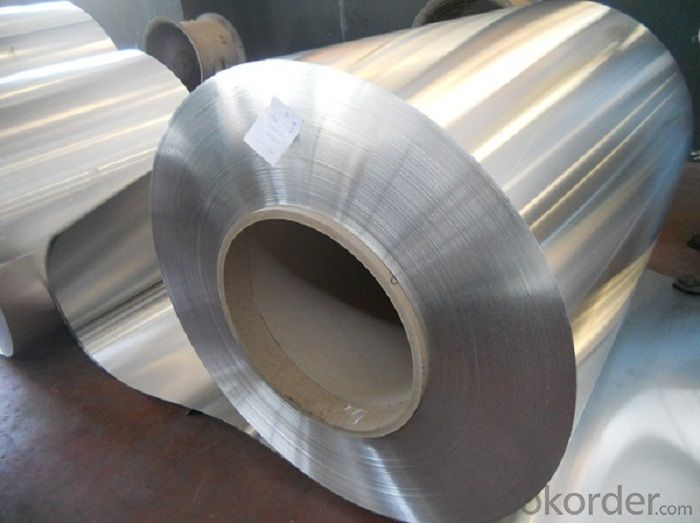
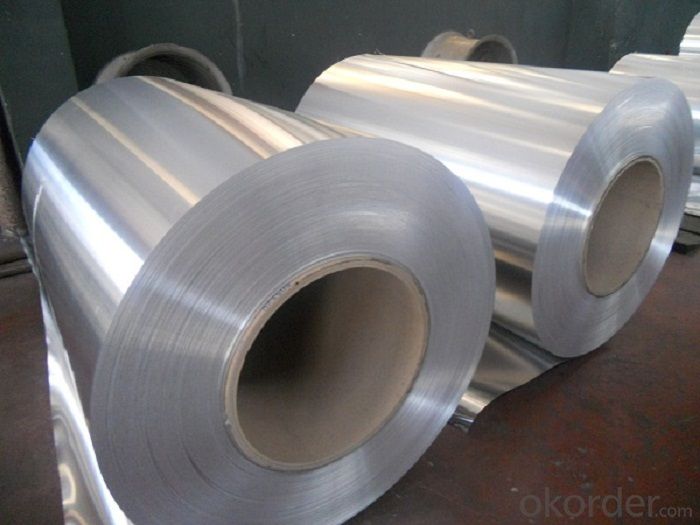
l Certificates
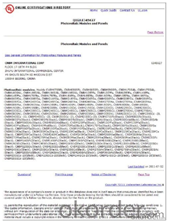
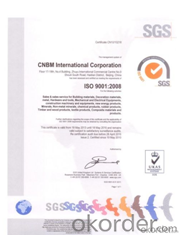
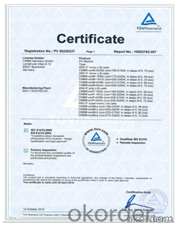
l FAQ
Q: Do you provide free samples?
A: Yes, free samples will be sent to you on freight at destination.
Q: Can I get your latest products catalogue?
A: Yes, it will be sent to you in no time.
Q: What is the MOQ?
A: 2.5 tons
Q: What are your payment terms?
A: We accept L/C, T/T
- Q:Are aluminum coils compatible with different joining methods?
- Different joining methods can be used with aluminum coils. Aluminum, a versatile metal, can be joined using techniques like welding, brazing, soldering, and mechanical fastening. The choice of method depends on the specific application and desired joint properties. To join aluminum coils, welding is commonly used as it creates a strong and durable bond. Various welding techniques, such as MIG, TIG, and resistance welding, can be employed based on the thickness and alloy type. Brazing is another effective method for joining aluminum coils. It involves heating a filler material with a lower melting point than the base metal to create a strong joint. Brazing is suitable when joining aluminum coils with dissimilar metals. For thin aluminum coils or when a lower temperature method is necessary, soldering is a suitable option. It involves melting a low-temperature alloy (solder) to join the coils together. Soldering finds common use in electronics and plumbing applications. Mechanical fastening methods like bolts, screws, rivets, or clips can also be used to join aluminum coils. These methods provide a reliable and removable joint, making them appropriate for applications requiring disassembly. In conclusion, different joining methods, including welding, brazing, soldering, and mechanical fastening, can be used with aluminum coils. The choice depends on factors like the application, alloy type, and desired joint properties.
- Q:Can aluminum coils be used in high-pressure applications?
- No, aluminum coils are not typically used in high-pressure applications due to their lower strength and less resistance to deformation compared to other materials such as steel.
- Q:What are the typical applications of aluminum coils in the automotive industry?
- Due to their advantageous properties, aluminum coils are widely utilized in various applications within the automotive industry. One particular use is in the manufacturing of heat exchangers, like radiators and condensers, which greatly benefit from aluminum's high thermal conductivity. This allows for efficient heat transfer, which in turn enhances the cooling efficiency of both the vehicle's engine and air conditioning system. Another common application of aluminum coils in the automotive sector involves constructing lightweight body panels and structural components. Aluminum's low density is well-known for reducing the overall weight of vehicles, resulting in improved fuel efficiency and reduced emissions. Additionally, the high strength-to-weight ratio of aluminum makes it an ideal material for impact-absorbing structures, thus enhancing vehicle safety. Aluminum coils are also extensively used in the production of electrical wiring systems and connectors in automobiles. Its excellent electrical conductivity enables efficient transmission of electrical signals throughout the vehicle. Furthermore, aluminum's corrosion resistance properties make it suitable for use in various weather conditions. Furthermore, aluminum coils are also employed in the production of suspension systems, including control arms and knuckles. The stiffness and durability of aluminum contribute to enhanced handling and responsiveness, ultimately resulting in improved driving dynamics. In conclusion, aluminum coils find typical applications in the automotive industry, including heat exchangers, lightweight body panels, electrical wiring systems, and suspension components. These applications effectively utilize the advantageous properties of aluminum, such as high thermal conductivity, low density, excellent electrical conductivity, and corrosion resistance.
- Q:i need ONE advantage of each, and a final reason why aluminium is used?
- Copper and Aluminum are both great conductors of electricity. Aluminum is actually more dangerous than copper, as it expands/contracts a lot more with heat, and is a primary cause of house fires. Copper's advantage is that it is more reliable, it doesn't corrode as easily, and does not expand/contract much with application of heat. I believe that aluminum has an edge as a conductor, though, and is less expensive to manufacture.
- Q:Well, we've got the existing old school 7 layers of peeling yucky painted siding and we're trying to weigh our options. So here's my questions:1) Is it cost effective to replace Aluminum with Vinyl?2) Is Vinyl truly as costly as we keep hearing? **Home is small 1,100 sq.ft with a 2.5 car Garage**3) Is painting this existing siding a wise choice since the current paint job on it looks terrible? We just need to make it more a home, right now it's gorgeously all new and redone inside and on the outside it still resembles the day we bought it in forclosure. Aside from my green grass I busted my butt on last summer.Please advise.
- Vinyl siding, the kind that is single thickness with no backer, will bend, buckle, and distort in about 5 years. The vinyl siding with foam backer is somewhat better but not much. It will look badly in years to come. . Just drive around and look at some of those homes built just a couple years ago with that stuff on them. Notice how twisted and buckled and bent and crooked that stuff has become. Plain terrible I think. Paying that much for a house, it should last a lifetime. There are COATING companies around that will come and clean your existing aluminum siding, They will remove dents, apply a 2 part epoxy primer, and then a two part Vinyl coating that will last for 30 years under a warranty. These coatings can also be applied to wood siding, they give it a renewed look, and no painting ever again. You cannot do this yourself. It is done with airless type sprayers and it lasts literally forever. I had this done to my aluminum underhangs and gutter and wood window wells on my brick house. That stuff is so tough and smooth that even dirt or dust doesnt stick to it. Look under Vinyl Coatings in the Yellow Pages. If there is a home show in your area, go to one of those and you can see these new coatings. They are really superior to any painting you can do yourself, Yes, they cost a bunch more but they are well worth it in the long run. That Aluminum on there is 100 Times better than any vinyl will ever be. It will last indefenitely. Dont be fooled by some vinyl salesman's pitch of insulating qualities of vinyl with that thin 1/4 inch of foam on the back. That is nonsense, that thin of a foam in a side wall means nothing on insulation value for your house. Stick with your Aluminum and your wood siding and window trims, get it coated and you will be very happy with that.
- Q:How do you store aluminum coils to prevent damage?
- To prevent damage to aluminum coils, it is best to store them in a dry and well-ventilated area, away from direct sunlight and moisture. Storing them horizontally on a clean and flat surface, while using proper supports or holders to prevent rolling or bending, will also help maintain their integrity. Additionally, ensuring that the storage area is free from any sharp objects or potentially corrosive materials will further safeguard the aluminum coils from damage.
- Q:What are the different edge profiles available for aluminum coils?
- There are several different edge profiles available for aluminum coils, including square edge, round edge, and beveled edge. These profiles provide different levels of protection and aesthetics, allowing for customization based on specific application requirements.
- Q:What are the different coil winding options available for aluminum coils?
- There are several different coil winding options available for aluminum coils. These options include: 1. Single-layer winding: This is the most basic winding option where the wire is wound in a single layer around the coil. It is suitable for applications where space is limited and efficient cooling is required. 2. Double-layer winding: In this winding option, two layers of wire are wound on top of each other. This provides better heat dissipation and allows for higher power handling capacity. 3. Concentric winding: Concentric winding involves winding the wire in a series of concentric circles, with each layer of wire having a slightly different diameter. This type of winding is used to reduce the overall size of the coil while maintaining high inductance. 4. Litz wire winding: Litz wire is a type of wire made up of multiple strands, each individually insulated. This winding option is used to minimize skin effect and reduce power loss due to high-frequency currents. Litz wire winding is commonly used in high-frequency applications. 5. Toroidal winding: Toroidal winding involves winding the wire in a circular shape, creating a toroidal coil. This type of winding offers better magnetic field containment and reduced electromagnetic interference. 6. Layered winding: Layered winding involves winding the wire in multiple layers, with each layer insulated from the previous one. This type of winding is used when a high number of turns is required in a compact space. 7. Sectional winding: Sectional winding involves dividing the coil into different sections and winding each section separately. This allows for better control over the distribution of magnetic flux and reduces losses. Each of these coil winding options has its own advantages and is suitable for different applications based on factors such as power handling capacity, size constraints, and frequency requirements.
- Q:Can aluminum coils be used in the production of lighting fixtures?
- Yes, aluminum coils can be used in the production of lighting fixtures. Aluminum is a lightweight and durable material that is commonly used in various industrial applications, including lighting fixtures. It offers excellent heat dissipation properties, making it suitable for housing and cooling components in lighting fixtures. Additionally, aluminum coils can be easily shaped and formed to create different designs and sizes of fixtures, making them a versatile choice for manufacturers.
- Q:What is the minimum width of aluminum coils?
- The minimum width of aluminum coils can vary depending on the specific requirements and manufacturing capabilities. However, in general, the minimum width of aluminum coils typically ranges from around 0.25 inches to 0.5 inches. It is important to note that specialized manufacturing processes may allow for even narrower widths, but these are less common and may come with additional costs or limitations. Additionally, the specific application and industry requirements will also play a role in determining the minimum width needed for aluminum coils.
1. Manufacturer Overview |
|
|---|---|
| Location | |
| Year Established | |
| Annual Output Value | |
| Main Markets | |
| Company Certifications | |
2. Manufacturer Certificates |
|
|---|---|
| a) Certification Name | |
| Range | |
| Reference | |
| Validity Period | |
3. Manufacturer Capability |
|
|---|---|
| a)Trade Capacity | |
| Nearest Port | |
| Export Percentage | |
| No.of Employees in Trade Department | |
| Language Spoken: | |
| b)Factory Information | |
| Factory Size: | |
| No. of Production Lines | |
| Contract Manufacturing | |
| Product Price Range | |
Send your message to us
Aluminium Coil for Cable Shield with High Quality and Cheap Price
- Loading Port:
- Shanghai
- Payment Terms:
- TT OR LC
- Min Order Qty:
- 2.5
- Supply Capability:
- 5000 m.t./month
OKorder Service Pledge
OKorder Financial Service
Similar products
New products
Hot products
Hot Searches
Related keywords
